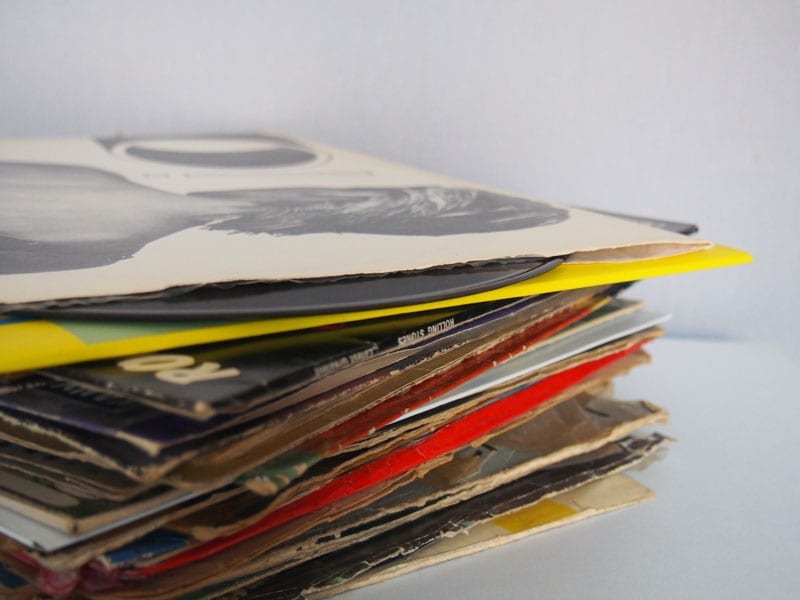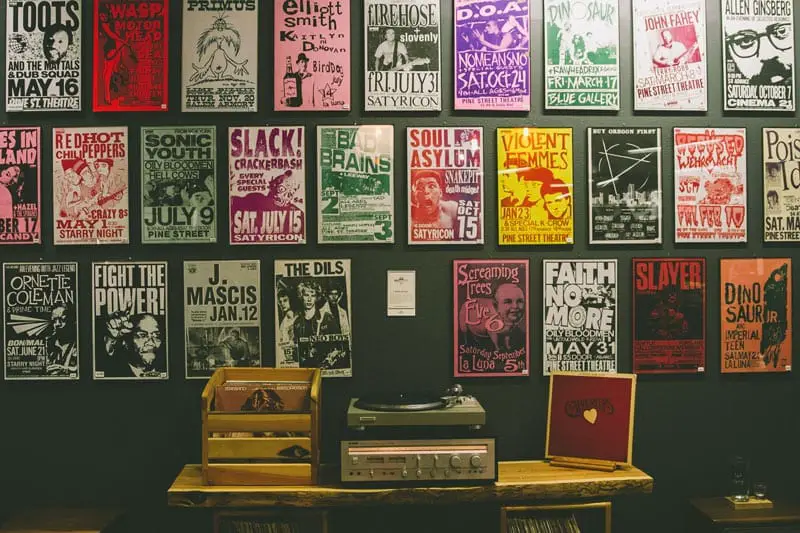The internet is absolutely brimming with articles proclaiming that vinyl is back. Articles like this one:
The Biggest Music Comeback of 2014 – Vinyl Records – The Wall Street Journal
Or this one…
Weaned on CDs, They’re Reaching for Vinyl – The New York Times
Everywhere you turn, there’s news of blossoming sales and the irony of an analogue renaissance in the digital age, but not everyone is happy.
More recently, we’ve seen a wave of articles from concerned vinyl aficionados – primarily from the electronic music scene – about how vinyl hype is ‘killing the record‘. Another, similar article talks in great detail about the struggles of independent artists who now fight to get their records pressed since the big labels started riding the new vinyl wave. Both articles paint an apocalyptic view of a recording pressing industry on its knees; pushed way beyond capacity and reliant on crumbling, antiquated equipment.
Ironically, independents are even turning their back on Record Store Day, which was created to celebrate and support independent record stores. The finger of blame is pointed squarely at the major labels, who create huge backlogs in the already squeezed 40 remaining record plants worldwide by insisting on repressing their back-catalogue in time for the annual Record Store Day event.
While such concerns are valid, I do not subscribe to their doom-and-gloom rhetoric about the future of vinyl. Instead, I’m a firm believer in market forces; if there truly is a sustainable appetite for vinyl records beyond the hype, someone with enough entrepreneurial spirit and capital will eventually step in. Who knows, maybe we’ll see Richard Branson re-enter the record business? Only time will tell.
In-fact the current bottleneck (around 6 months) has been enough to push some independents to open their own record plant. Fat Possum’s Memphis Record Pressing is an example of market forces doing their thing.
Returning to my point; despite understanding the real concerns felt by independent labels about vinyl, I’m not convinced. Where I do see a real threat to the music business is the topic of reissues. Both articles complain bitterly about major labels re-releasing classic back-catalogue albums – causing real challenges for new, independent artists. In this argument, I see something truly unsustainable.
Selling music history
There is a recurring theme in articles documenting the realities of a vinyl resurgence – a general sense that the major labels are trying to sell their extensive back-catalogue for a 3rd time. You only have to take a fleeting glance at the newly instated UK vinyl album chart to see where these suspicions come from; the most recent of which shows none other than Pink Floyd’s Dark Side of the Moon listed as number 22 in the chart.
Other back catalogue classics in the current vinyl album chart include Fleetwood Mac Rumours, Led Zep IV, Nirvana Unplugged in New York, and The Stone Roses self-titled album to name but a few. How can it be, that a current vinyl chart – supposedly reflecting current music trends – can have so many decades old titles in high positions?
Looking at the high volume of reissues, it would be easy to draw the conclusion of a vinyl revival driven by middle-aged consumers on a nostalgia trip. But studies suggest otherwise, with recent figures revealing that ‘72% of vinyl buyers are 35 and under‘.
These are interesting numbers, and it would appear not only are major labels selling their back catalogue for a 3rd time, but they’re also selling them to a whole new audience and generation. In addition, the list of reissued titles above would also suggest a move toward reissuing 90’s classics. In other words, major labels are scraping the barrel for any title remotely old enough to warrant a reissue. This phenomenon is where the problems start.
A new generation
Great music is passed down from generation to generation. Young adults, such as myself, with parents who grew up in the 60’s and 70’s have discovered a treasure trove of timeless classics thanks to a much smaller generational gap than previously existed between parent and child.
The sharing and passing down of music in itself is a great thing, it broadens horizons and brings generations together. The problem is, record companies appear far too reliant on back catalogue sales, and if things continue as they are, we will eventually run out of music to reissue. As the article linked in this paragraph suggests, we will literally run out of history.
Don’t get me wrong, every generation has its classics and there will always be new music. But if we take the last decade as an example, the trend appears to move – along with many aspects of the age in which we live – to an increasingly short-term tactical approach. It would appear that major labels would far rather rely on celebrity TV talent shows – such as The Voice – to find quick wins while the back-catalogue does the heavy lifting. When you consider the cost of ‘breaking in’ a new artist can be anywhere between $500,000 and $2million – it’s easy to see why.
Business as usual
Back-catalogue mining isn’t a new phenomenon either. Record labels have relied on reissues for years to pad out sales, but the situation appears to have developed into an acute problem in recent years.
The re-release of the entire Beatles catalogue back in 2009 is a good example, and the following paragraph from an article in the Guardian pretty much sums things up:
‘Struggling to earn money on new artists, record labels are mining their vaults for hidden gems and classic tracks to exploit anniversaries, new generations of fans, demand for collectable re-releases and impetus from new formats such as downloads.’
I agree wholeheartedly with the articles sentiment – a limping music industry is propping itself up on past successes.
To emphasise further, a later quote in the same article demonstrates the looming long term issue with the industries strategy:
“Paul Williams, editor of Music Week, notes that ‘a focus on the old over the new can only hold up so long. There is a risk of neglecting A&R’, he says.”
Music for future generations
 For me, the last quote in particular demonstrates the risk of a reissue time bomb. After all, there’s only a finite number of times you can reissue the Beatles before you’re going to need a new artist or two. What will they do when the original generation have either passed away or lost interest? Naturally, as the successes of yesteryear are past down from generation to generation, the amount of interest will dwindle. I may have adopted a passion for classic albums from my parents, but will my kid’s care in the same way?
For me, the last quote in particular demonstrates the risk of a reissue time bomb. After all, there’s only a finite number of times you can reissue the Beatles before you’re going to need a new artist or two. What will they do when the original generation have either passed away or lost interest? Naturally, as the successes of yesteryear are past down from generation to generation, the amount of interest will dwindle. I may have adopted a passion for classic albums from my parents, but will my kid’s care in the same way?
There is, however, hope on the horizon. The fact that more and more young people are discovering vinyl proves there is still a place for tangible products in music. Well packaged, new and re-issued vinyl has once again made music a viable product that people are willing to pay for. The test will be down to music labels willing to take a chance on potential classics of the future. Given that major labels seem more interested in clogging up vinyl production with relentless volumes of reissues – it might take someone to open an independent only pressing plant to achieve this. What say you?






[…] vinyl in the digital age, there’s a general feeling among many that major record labels are cynically re-selling their back-catalogue for a 3rd time to a generation that abandoned vinyl for CD back in the 80’s, […]
Marc, you’re painting a pretty gloomy picture… but I fear you may be right about this.
Vinyl plants are at capacity right now so it’s a given that growth will be slow.
My main client, who owns a small but well run independent label, tells me there is as much as a 6 month pre-booking time for pressing his vinyl, which are not exactly chart-topping albums.
It’s not just major labels being too demanding of capacity, it’s everyone. So unless some more plants are created this will be un-solvable . Unfortunately it is a very expensive undertaking to create a pressing facility from scratch. Much more expensive than would be workable for independent labels operating alone. If a major label came up with the capacity, there’s no guarantee that it would take any pressure off the independents.
Hm.
So, I wonder whether major labels and independents could join forces to fund more capacity? It would take some doing but everyone would benefit if vinyl really does reclaim a larger share of the market.
In the film world, at least in the UK, there was something called the ‘Eady Levy’ which was a kind of tax on ticket sales, the proceeds of which were funneled back into UK film production. The advantages were that it got around trade agreements with US backers and it genuinely created more film-making capacity in the UK. Everyone was happier.
If you could knock the heads together of all the labels, to create a similar ‘levy’ on sales, capacity could be achieved with minimal effort and proportional to actual sales.
Pipe dream?